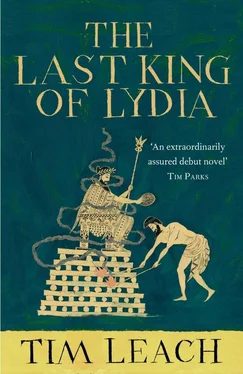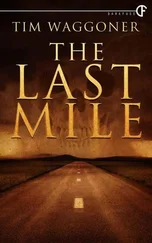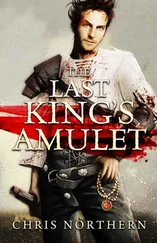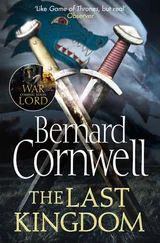Tim Leach - The Last King of Lydia
Здесь есть возможность читать онлайн «Tim Leach - The Last King of Lydia» весь текст электронной книги совершенно бесплатно (целиком полную версию без сокращений). В некоторых случаях можно слушать аудио, скачать через торрент в формате fb2 и присутствует краткое содержание. Год выпуска: 2013, ISBN: 2013, Издательство: Atlantic Books Ltd, Жанр: Исторические приключения, на английском языке. Описание произведения, (предисловие) а так же отзывы посетителей доступны на портале библиотеки ЛибКат.
- Название:The Last King of Lydia
- Автор:
- Издательство:Atlantic Books Ltd
- Жанр:
- Год:2013
- ISBN:9780857899200
- Рейтинг книги:5 / 5. Голосов: 1
-
Избранное:Добавить в избранное
- Отзывы:
-
Ваша оценка:
- 100
- 1
- 2
- 3
- 4
- 5
The Last King of Lydia: краткое содержание, описание и аннотация
Предлагаем к чтению аннотацию, описание, краткое содержание или предисловие (зависит от того, что написал сам автор книги «The Last King of Lydia»). Если вы не нашли необходимую информацию о книге — напишите в комментариях, мы постараемся отыскать её.
The Last King of Lydia — читать онлайн бесплатно полную книгу (весь текст) целиком
Ниже представлен текст книги, разбитый по страницам. Система сохранения места последней прочитанной страницы, позволяет с удобством читать онлайн бесплатно книгу «The Last King of Lydia», без необходимости каждый раз заново искать на чём Вы остановились. Поставьте закладку, и сможете в любой момент перейти на страницу, на которой закончили чтение.
Интервал:
Закладка:
On dry land once more, the convoy would pass along the good, clear path to Thebes, the soldiers doubling their sentries at night to guard against the bandits who were always watching the road. Then it would ascend the steep mountain paths, to Delphi itself. The Lydian offering would join a gallery of riches, the only place in the world that could perhaps overshadow Croesus’s treasuries. There were gifts from Croesus’s father there, and from the kings that had ruled Sardis before him, four generations of Lydian kings who had sought to buy favour at a temple that none of them had ever seen. Their offerings joined gifts from dozens of kings, given over centuries, each ruler seeking the favour of the Gods.
Isocrates had never seen these places. He imagined the journey through lands that he knew only from travellers’ tales. Perhaps along the way, he thought, they would have reason to put in at one of the islands as they crossed the Aegean. Bad weather, or sickness amongst the crew might lead them to a friendly harbour. Perhaps the winds would drive them far, far south, like wandering Odysseus, and of all the places they might put in, they might find themselves landing on the island of Thera — the one place, apart from Sardis, that Isocrates had seen with his own eyes. Dimly, he remembered red cliffs and black beaches, the songs his father sang as he laid out the fishing nets, the smell as his mother baked bread. It was the land he had been taken from as a boy, could now no longer clearly recollect, and would never see again.
Isocrates yawned and pinched the bridge of his nose. He went inside to find his master.
6
The answer from Delphi came swiftly.
With hesitant hands, like a shy lover, Croesus unrolled the parchment. On it were written four simple lines of prophecy:
If you wage war against Persia, mighty Croesus,
Then know this: you will destroy a great empire.
You must ally yourself with the strongest Hellenes
To earn the favour of the Gods.
Croesus thought of the wealth that had bought each stroke of every letter. The hundred gold ingots that had acquired the first letters of Persia , the colossal golden lion that had perhaps been enough to purchase the words great empire . He wondered which stroke his wife’s necklaces and girdles had earned. What power there is in words, he thought. The force of these words is enough to win me an empire.
He turned to the messenger. ‘This oracle, she is remarkable. Do you think that she would answer another question of mine?’
‘Such was the generosity of your gifts, I cannot think that she would refuse you.’
‘Good. Ask her for how long I will reign.’
The messenger nodded. ‘It shall be done. Is that all, my lord?’
Croesus hesitated, and Isocrates, who stood at the king’s side, looked at his master closely. It was the first time in months that he had seen Croesus show anything approaching doubt.
‘Ask her one more favour for me,’ Croesus said. ‘If the oracle will permit it.’
‘What should I ask?’
Croesus turned his head, and looked into the corner of the room. On the floor sat Gyges, idly running a piece of embroidered cloth through his hands. Since the day of the sacrifice, he had spent much of every day in Croesus’s company. He followed the king silently but paid no apparent attention to him, retreating to some isolated corner of the room, toying with some piece of jewellery or fabric, and plunging deeper into whatever world his mind inhabited. Croesus could not imagine what prompted this behaviour, what it might mean. Occasionally he wondered if it amounted to some kind of reprimand, or warning. But for the most part, he thought it signified nothing.
The king turned back to the messenger, licked his lips, then spoke again. ‘Ask her if my son will ever speak to me.’ With that, he rose from his throne and walked away, his head low, declining to meet the gaze of any other in the room. He beckoned to Isocrates to follow him.
‘Tell me about Athens and Sparta.’
‘Athens and Sparta?’
‘You heard the prophecy,’ Croesus said, reclining on a couch in his private chambers. ‘We must have allies for this war. Which is the stronger?’
‘Athens is divided,’ Isocrates said, after a moment’s thought. ‘They threw out their tyrant Pisistratus some years ago. But I’ve heard rebellion is coming. Pisistratus may return to power.’
‘So Athens is in chaos?’ Croesus said. He thought of Solon’s love for his city, and felt a stabbing, guilty pleasure. ‘What of Sparta?’
‘Not as wealthy as some nations, but they are great warriors. I can’t imagine you will find a more valuable ally, especially since their war against Tegea.’
‘Strong and stable? Men like you, Isocrates.’
‘Perhaps, master.’
‘You do not like the comparison?’
‘They worship war more than any other people I know. I do not think that is something to be proud of.’
‘That makes them ideal for our purpose.’
‘True, master. Shall I dispatch the emissaries?’
‘Yes, yes. Immediately.’ Croesus turned from Isocrates but the slave felt that he had not yet been dismissed. ‘What a slow business this is,’ the king said. ‘I think I might spend a lifetime at this. Sacrificing to oracles. Sending emissaries. Haggling with my nobles. Assembling the army. I am not sure I have the patience. Then again, Solon. .’ He hesitated, like a superstitious man who utters an unintended blasphemy.
‘Yes, master?’
‘Solon told me that he spent a lifetime trying to pass a dozen laws. Laws that were repealed a decade after he left his city. I suppose I should be grateful if I can build an empire in a few years.’ He stared out of a window, towards the east. ‘Still, I wish I could begin my work.’
‘Where you lead, we will follow,’ the Spartan ambassador said. ‘We have not forgotten your gift of gold for our temple. All we ask is that our sacrifices are not forgotten. Perhaps the wealth and strength of Lydia may come to the assistance of Sparta at some time in the future, when we have need of your help.’
‘Of course,’ Croesus responded lightly. The alliance between Sparta and Lydia had been sealed in writing a month before. The appearance of Lakrines, a flint-faced ambassador with close-cropped hair, clad in the red cloak of the Spartan nobility, was a mere formality, a ritual to be concluded. ‘Your two kings send a gift, I presume?’ Croesus said.
‘They do. But, there is a greater offering that our craftsmen are working on. A great bronze bowl — we have heard that you love bronze.’ Croesus flinched at this. He had forgotten how far that rumour had spread.
Lakrines bowed, and continued: ‘But we hope this small token will suffice for now.’ He gestured to one of his helots, who came forward, his eyes down, and presented a small wooden casket to Croesus.
The king opened the casket and surveyed its contents with little interest. Rough coins of gold and silver that, compared to the craftsmanship he was used to, were like the work of children. Paltry treasures that would occupy only a small shelf in one of Croesus’s treasuries, but he knew that they represented a small fortune to the Spartans. He flipped the lid of the casket shut and smiled politely at his visitor.
‘The king of Lydia thanks the kings of Sparta for their gifts, and expects that this is the beginning of a long and mutually prosperous alliance.’ He stifled a yawn with his hand. ‘You may leave us.’
The emissary bowed again, and Croesus waited until he had reached the entrance of the throne room before he spoke again. ‘Stop,’ the king said. ‘There is one last thing I wish to ask.’
The Spartan turned back. ‘Yes, King Croesus?’
Читать дальшеИнтервал:
Закладка:
Похожие книги на «The Last King of Lydia»
Представляем Вашему вниманию похожие книги на «The Last King of Lydia» списком для выбора. Мы отобрали схожую по названию и смыслу литературу в надежде предоставить читателям больше вариантов отыскать новые, интересные, ещё непрочитанные произведения.
Обсуждение, отзывы о книге «The Last King of Lydia» и просто собственные мнения читателей. Оставьте ваши комментарии, напишите, что Вы думаете о произведении, его смысле или главных героях. Укажите что конкретно понравилось, а что нет, и почему Вы так считаете.












